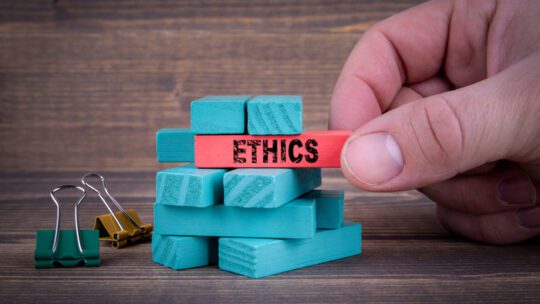
I enjoyed “An Ethical Conundrum: Should Companies Post Diverse Imagery if They’re Not Diverse?” I'm likely exposing my naïveté, but I never thought of this as a common ethical risk before, but I should have.
In 2020, JP Canton, Polestar’s head of communication and PR in North America, discussed a variation of the issue with me. In this case a former employer asked Canton to help make the company seem more diverse than it was in a video for internal communication and recruiting.
That example was a case of over-indexing and creating a wrong impression. It is not ethical, but I can see how some could want to do it.
Using false and fake images is a different thing altogether. For example, the PRNEWS article mentions a company using a photo of a Black woman on its site, suggesting she's its CEO. In fact, the CEO is white.
Another example: making a product look the best it can is fine.
However, it's crossing the line should you post imagery suggesting a consumer can purchase a green-colored widget (because research shows green sells best), yet the widget is available in blue only.
Using stock photos that do not accurately represent a company also is unethical. As the PRNEWS article notes, any perceived short-term gain from this will be a long-term loss.
Audio and video deepfakes
Beyond using photos unethically, what's concerning is the growing ease of video and audio deepfakes, their use by bad actors and the threat these increasingly pose for brands and society.
Horrific acts strike a chord in us because we see them on video. As more videos are doctored, people will distrust what they see. This may have chilling consequences.
Guidelines for imagery
I disagree with a statement in the article attributed to Dr. Rebecca Swift, VP, global head of creative insights at Getty Images: [W]ith "branding, marketing and advertising" imagery, "there are no ethical guidelines, per se.”
You can’t create a specific rule for everything, and if you try, you actually encourage people to find loopholes. None of the codes of ethics PR pros use mention the metaverse or Mars–yet the codes still apply there.
Thinking otherwise is like when your son hypothetically tries to get out of trouble by saying, “You told me not to hit my brother. But you never told me not to kick, bite or body slam him.”
Guidelines covering imagery
There are clear guidelines that address issues the article describes. It doesn’t matter which code you apply; each includes prohibitions against using imagery unethically:
- PRSA – Honesty. Using a photo of a different person can never be considered honest. (Catfishing, anyone?)
- Page Society – Tell the Truth. Another code, still prohibited.
- Global Alliance – Honesty. We will adhere to the highest standards of accuracy and truth in advancing the interests of clients and employers.
- IABC – Choose from two: I am honest or I communicate accurate information.
- IPRA – Take your pick: Accuracy, falsehood, or deception.
- PRCA’s Code of Conduct – Adhere to the highest standards of accuracy and truth.
- PR Council – We will not knowingly misuse or misrepresent data provided by our clients, third-parties or our own organizations, invent facts, falsify information, or intentionally mischaracterize the results of scientific research for any purpose.
As AI, generative images, deepfakes and other technology tools make it easier than ever to manipulate images, PR pros must be vigilant. It’s clear that training employees’ ethical minds and holding regular ethics discussions are vital steps.
A simple ethic framework
1) Identify an issue.
2) Determine what is causing the concern.
3) Decide who is impacted and how your choices will influence them.
4) Review codes of ethics.
5) Discuss the situation with your team and others. Never make the call yourself. You will introduce bias and may miss things.
6) Make the call on the issue.
7) After making the call, revisit the decision and evaluate what you should have done differently.
Mark W. McClennan, APR, Fellow PRSA, is GM of C+C’s Boston office, host of EthicalVoices and author of Ethical Voices – Practicing Public Relations with Integrity (2022).
[Note: The writer’s views do not necessarily reflect those of PRNEWS. We invite opposing essays from readers.]
